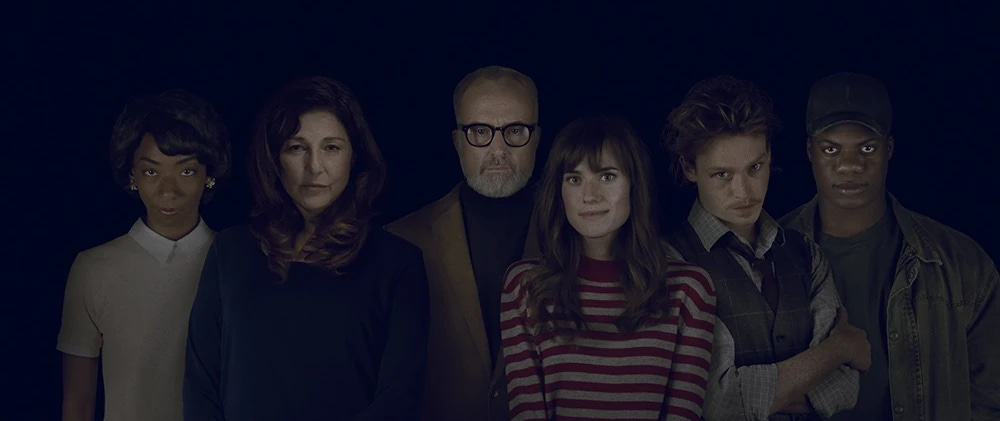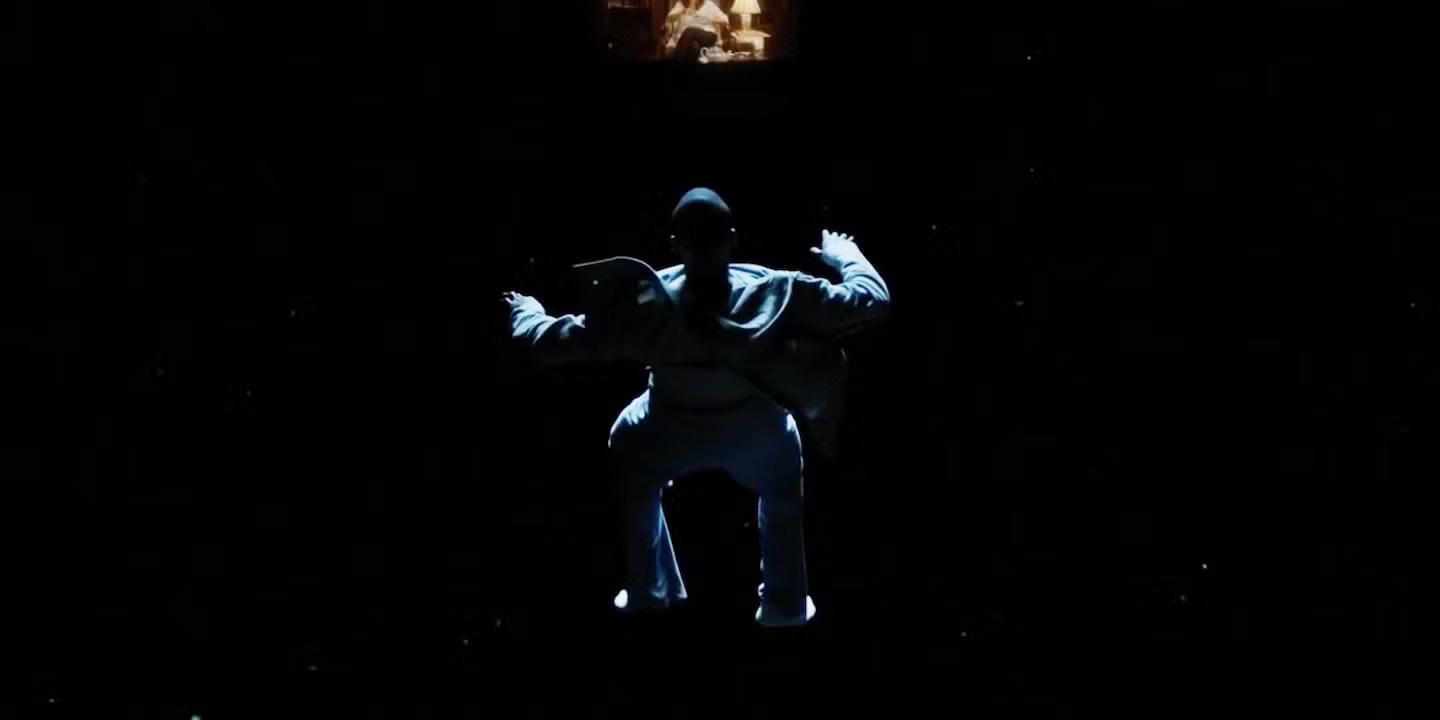If you ask me which film genre feels the most familiar to Black people, not just on-screen but in real life, it’s horror. And no, I’m not talking about Tyler Perry movies and his awful wig choices. I’m talking about the kind of horror that hits close to home. Not the haunted houses or possessed dolls, because what are the odds we would end up in one of those situations? I don't know about you, but I'm not about to wander into a creepy basement or into the middle of the woods just because I heard a strange noise. We know better than that by now.
For me, the most chilling horrors are wrapped in realism and echo the things we’ve seen, felt, or feared, and if it’s too far-fetched or unrealistic, it becomes more humorous than scary.
Horror becomes real when it's believable. When the scariest part of a film isn’t the jump scare, it’s the possibility. And that’s what Get Out does so brilliantly. To this day, it’s the one movie that has truly creeped me out to the point that I’ve never rewatched it.
Jordan Peele’s 2017 Get Out is classed as a “horror comedy”, but that “comedy” part is debatable, and it still terrifies me to this day. The film follows Chris Washington, a Black photographer visiting his white girlfriend Rose Armitage’s family in a quiet, wealthy suburb. Everything seems calm, even friendly, but what unravels is a kind of horror steeped in real, lived Black fear. The kind of fear that wears a cardigan, a smile and offers you tea.
Admiration or Obsession?
Watching Get Out for the first time, I laughed nervously and then immediately spiralled into paranoia. It surfaced one of my deepest irrational-yet-rational fears: being consumed by whiteness. Literally. That … and also being kidnapped and sold by white people. The idea of being lured into a space that I would never leave so that my body could be admired, auctioned off, and emptied out and then taken over by a white woman? Yeah, that's a horror for me.
And yet... it doesn’t feel like fantasy.
We joke and make comments like "This is why you don’t trust white people,” and we are known for our love of conspiracies, but there's truth beneath that humour. Get Out taps into the quiet terror many Black people feel when entering white spaces: the fear of being exoticised, studied, or erased.
What makes Get Out so chilling isn’t just the plot; it’s the truth behind the fiction and that it feels possible. It’s the fear of existing while Black in spaces never built for us. The terror that a white person's politeness is a mask and that their allyship is just an obsession in disguise.
Chris being emotionally and physically dismantled while everyone smiles politely isn’t fantasy; it’s a dramatised, painfully recognisable reality.
The Spectacle of Blackness
The Armitages aren’t the traditional villains; they look like the ‘good guys’. They don’t appear overtly racist; they’re liberal, “woke”, and performatively down-to-earth. They brag about their Black friends, fetishise Black excellence, and say they would have voted for Obama a third time (all major red flags, by the way). They don’t hate Black people; they “love” us. But what they really love is what Blackness can do for them, not what it means to be us. Sound familiar?
They don’t hate Chris; they admire him, which is somehow worse because they admire him to the point of wanting to take over his body. This isn’t racism as hatred; it’s racism as parasitic obsession.
Their obsession isn’t just with race; it’s with what Blackness represents: authenticity, struggle, and “coolness”. Something they can’t manufacture, so they extract it. In their world, conspicuous authenticity becomes currency. It’s not enough to appreciate the culture; they want to become it without carrying its weight. The Armitages want to live inside Black bodies, not out of hate, but out of entitlement. Their obsession is rooted in desire, and that’s the scariest part.
That racism that looks like fascination, that fake allyship that masks entitlement, serves as a brutal reminder that Blackness is still commodified, often by how much white consumers can extract from it in a desperation to chase "authenticity". What was once a marker of truth and lived experience is now performance art. Blackness becomes a mask others wear for clout and for curated identity.
Get Out explores how elite, seemingly progressive spaces consume Black culture. Blackness isn’t just appreciated; it’s curated and auctioned off, like in the silent auction scene where Chris is sold to the highest bidder. An art dealer who doesn't just want Chris's artistic vision but also the branded value of being a Black artist who captures the raw, authentic realities of urban life.
A haunting callback to slavery, dressed up in modern elitism, where Black bodies are branded and prized as a room full of white elites bid on Black bodies and window shop for Blackness. Here, Blackness is a commodity. Not as a lived identity, but as a lifestyle upgrade, and that echoes far beyond fiction. From music labels profiting off Black creativity to algorithms that boost AAVE for virality while silencing the originators, our bodies, minds, and culture are constantly mined, marketed, and manipulated. Taking the good, leaving the ugly.
Get Out distils this grotesque reality into a single, unforgettable image: the “sunken place”.
The Sunken Place
The “sunken place” is one of the film’s most haunting metaphors. It’s not just about hypnosis; it’s about paralysis. It’s being silenced while fully aware, watching your life unfold from behind glass, screaming into a void no one hears. Chris is aware; he sees, hears, and feels, but he has no control. He is trapped in the backseat of his own body, a passenger in his own life. And that’s a deeply familiar sensation for so many Black people as we watch our culture be repackaged, sold, and stripped of meaning.
The sunken place is what we feel when we’re the only Black person in the room. Visible but invisible. Present but powerless. Whether in classrooms, boardrooms, or dinner tables filled with “well-meaning” friends. We laugh off comments we know aren't funny just to get through the day. We swallow our discomfort and question whether we're imagining something because we’re taught to doubt ourselves before we challenge anyone else.
That’s what makes the sunken place so terrifying. It’s the horror of being visible but unheard, all while the person behind it slowly disappears.
We've All Been Chris
I’ve been Chris. I’ve sat at tables where I was the only Black person. I’ve smiled through uncomfortable conversations to keep the peace. I’ve heard compliments that weren’t really compliments – the "You're so well-spoken” or the “You're not like other Black people.” I’ve felt that tightening in my chest. And I’ve wondered, am I just uncomfortable? Or am I in danger here? And like Chris, I’ve ignored it.
Films like Get Out are social autopsies, unearthing uncomfortable truths. They give language to fears we’ve never known how to express. They validate the paranoia that creeps in when we’re the only ones in the room. They hold our fears up to the light and dare us to look closely. Because often the scariest stories aren’t made up; they’re familiar.
What Are We Meant to “Get Out” Of?
That’s why Get Out still scares me because nothing about it feels distant. Eight years later and it's still relevant, if not more. It predicted how Black culture would be devoured by systems that smile while stealing. It anticipated the viral commodification of “Black authenticity” and the social performance of allyship.
It was a warning and still is. Not necessarily that white people are going to steal our minds and bodies (although I’m not ruling it out… kidding). But that we must question the so-called “niceness” of systems never meant for us. That we must examine allyship that feels a little too interested in our pain. That we must question the ones who love Blackness but can’t seem to actually listen to Black people.
The title Get Out isn’t just a command to Chris. It’s a call to all of us.
Get out of spaces that make you shrink. Get out of situations that praise your presence but mock your identity. Get out before your authenticity is auctioned off and your voice disappears into someone else’s narrative.
Sometimes, the real horror isn’t what we watch on screen. Sometimes it's real. Sometimes it pours the wine at dinner, compliments your skin, and asks to touch your hair.
Sometimes it’s a colleague. A friend. Even your own partner.
So when that voice in your head starts whispering, or screaming, “Something’s not right,” believe it.
Because the most terrifying part of Get Out isn’t the surgery or the hypnosis; it’s that moment when you realise you were right all along, that you should’ve listened to that voice.
So this is your reminder: trust your instincts. Stop gaslighting your discomfort. And if something feels off?








This is such a good read wow ! The use of 'Get out' as an analogy into blackness is perfectly depicted. This even makes me think of the recent 'Met Gala' theme 'Super fine-tailoring to black style' but majority of the attendees this year are not black. It's like as you mentioned, they only want our blackness when it profits them, they use our culture for its coolness but don't even give merit to the individuals who paved the way for it.
Another lovely piece of thoughtful writing